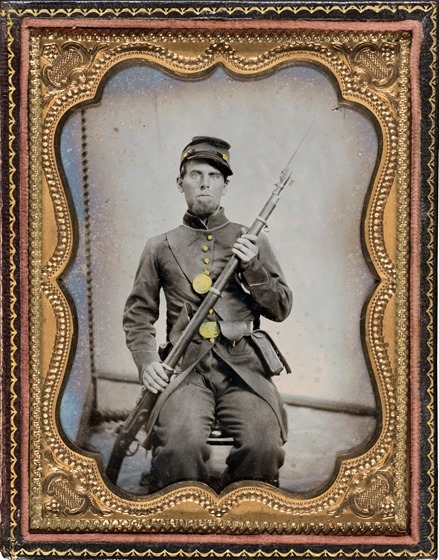August 24.—A party of Missouri cavalry, under the command of Colonel R. G. Woodrow, made a descent upon Pocahontas, Ark., and succeeded in routing and capturing a number of rebels, among whom was Brigadier-General Jeff Thompson.—(Doc. 154.)
General Gillmore, in a despatch from his headquarters on Morris Island, S. C., reported the partial demolition of Fort Sumter, as the result of seven days’ bombardment of that work.— Charleston was again shelled by the troops under General Gillmore.—(See Supplement.)
—A meeting of a portion of the people of Cumberland County, Va., was held this day, at which the following resolutions were unanimously adopted:
Resolved, That we heartily approve of the action of our Governor in calling an extra session of the Legislature for the purposes designated.
Resolved, That whereas we are engaged in a war for the maintenance of principles dear to every freeman, and that we are firmly resolved to prosecute this war under all circumstances and through whatever disasters may befall us, until our independence is established; therefore, we do request our representatives in the Senate and House of Delegates to advocate the passage of a bill for the enrolment, organization, and drilling, for home defence, of all capable of rendering such service, who are not already subject to military duty.
Resolved, That the said representatives be requested to advocate all measures having for their object the vigorous prosecution of this war.
Resolved, That we look with abhorrence on the idea of the reconstruction of the Union with the United States.
Resolved, That these proceedings be published in any Richmond papers.
—A skirmish took place at Coyle’s Tavern, on Little River turnpike, near Fairfax, Va., between a detachment of the Second Massachusetts cavalry and Mosby’s guerrillas. The Nationals, numbering only twenty-five, were attacked front and rear at the same time, but fought manfully. Their loss was two killed, three wounded, and nine taken prisoners, together with all the horses they had in charge, fifteen of which, however, were afterward recaptured, leaving eighty-five still in the hands of the enemy. The loss of the enemy was one captain and one lieutenant killed, and one lieutenant and three privates wounded. Mosby was himself wounded in two places, side and thigh. Colonel Lowell pursued the enemy from Centreville as far as Snicker’s Gap, but they succeeded in making their escape by reason of having constant remounts of fresh horses.—Fitz-Hugh Lee, with a rebel cavalry force, crossed the Rappahannock River near Corbin’s Neck, six miles below Fredericksburgh, but was soon driven back by the brigade of General Custer, with a loss in prisoners of three engineer officers, and a number of privates killed and wounded. The Union loss was slight—The Richmond Whig of this day contained the following: “A Southern paper, some weeks ago, threw out a suggestion that the Confederacy should arm some five or six hundred thousand negroes, and precipitate them upon the Yankees. The suggestion was doubtless to frighten the Yankees; but it has imposed upon a few of our own people. The proposition is too preposterous for serious discussion. It is enough to say it would be exchanging a profitable laborer for a very unprofitable soldier. Let the Yankees have negro armies. Nothing but their cowardice could have betrayed them into such a folly. They use the poor creatures as breastworks, but thus far with very little advantage. The Southern people arc willing to employ their slaves in any way that would tell best against the enemy. But it has yet to appear that they can do so in any manner so effective as in raising food for our armies. Some may be occasionally used in ditching and throwing up breastworks, and it is possible a limited number might be advantageously substituted for teamsters; though, in respect to the last, there may be doubts. In the main, no doubt, the most useful function compatible with their capacities is that to which they are accustomed—food-raising.”






